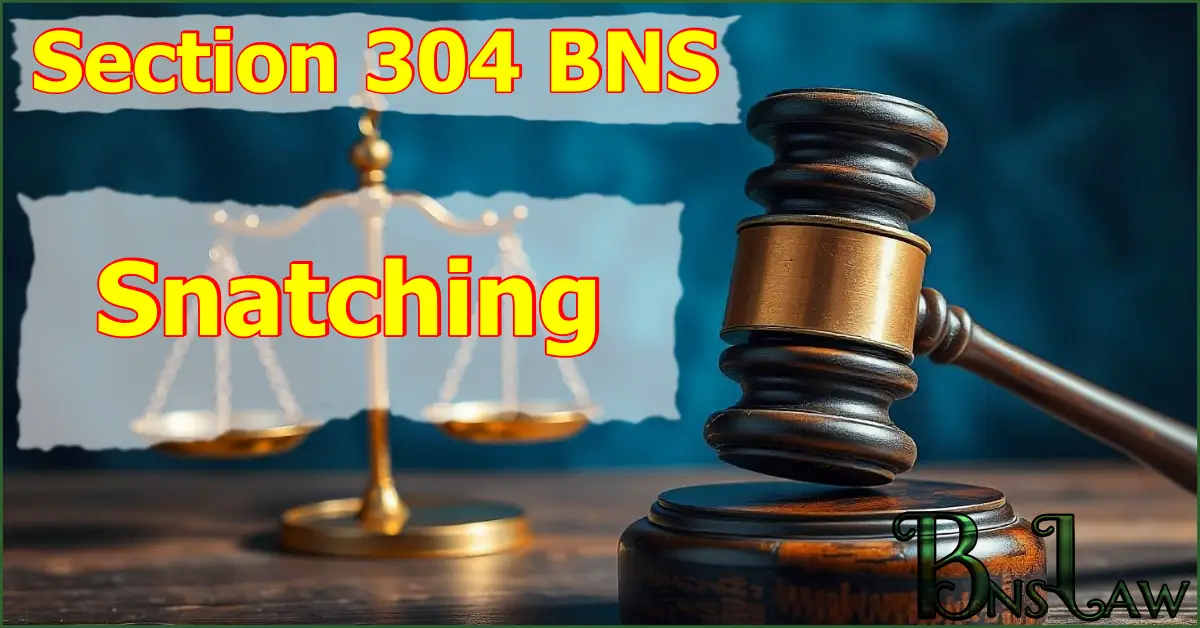Section 304 BNS | BNS 304
304(1) BNS
Theft is snatching if, in order to commit theft, the offender suddenly or quickly or forcibly seizes or secures or grabs or takes away from any person or from his possession any movable property.
304(2) BNS
Whoever commits snatching, shall be punished with imprisonment of either description for a term which may extend to three years, and shall also be liable to fine.
READ OTHER SECTIONS OF CHAPTER XVII — OF OFFENCES AGAINST PROPERTY
FAQs of BNS Section 304
-
304 BNS punishment and fine
Punishment and fine under Section 304(2) of the BNS: Imprisonment for 3 years and fine.
-
304 BNS cognizable or not
The offence under Section 304(2) of the BNS is cognizable.
-
304 BNS bailable or not
The offence under Section 304(2) of the BNS is non-bailable.
-
304 BNS trial court
Offence specified in Section 304(2) of the BNS is triable by any Magistrate.
Important Points
- Cognizable Offences: These are offences where a police officer can arrest a person without a warrant.
- Non-Cognizable Offences: These are offences where a police officer cannot arrest a person without a warrant.
- Bailable Offences: These are offences where the accused can get bail from the police station itself. All bailable offences are listed in the First Schedule of the Bharatiya Nagarik Suraksha Sanhita (BNSS).
- Non-Bailable Offences: Offences in which bail is not granted directly from the police station but after hearing the case in the court, the judge decides when bail will be granted. All non-bailable offences are listed in the first schedule of the Bharatiya Nagarik Suraksha Sanhita (BNSS).
- In the above FAQ, “trial court” means the court that has jurisdiction to try the offence.
- In the above FAQ, the expression “Magistrate of the first class” and “Any Magistrate” does not include Executive Magistrates.
Read other Sections of the BNS
Reference Link: New Criminal Laws (BNS), Ministry of Home Affairs







